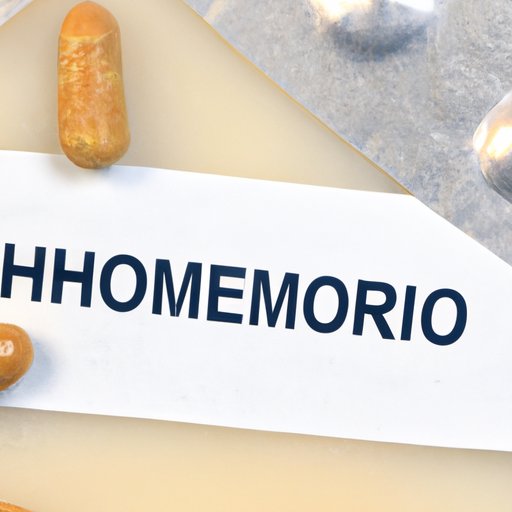
Introduction
According to the National Institute of Diabetes and Digestive and Kidney Diseases, around 75% of Americans will experience hemorrhoids at some point in their lives. Hemorrhoids are swollen veins in the anus and lower rectum that can cause discomfort and pain. Seeking effective treatment is crucial for managing symptoms and preventing future occurrences. In this article, we will explore natural remedies, dietary changes, topical treatments, lifestyle modifications, medical interventions, and coping strategies for healing hemorrhoids.
Natural Remedies for Hemorrhoid Relief
Natural remedies can provide relief from hemorrhoid symptoms by reducing inflammation and swelling. Witch hazel is a popular natural remedy that has astringent properties, which can help shrink swollen blood vessels. Aloe vera is another natural remedy that can soothe and heal hemorrhoids. Sitz baths, which involve soaking the affected area in warm water, can also provide symptom relief. Incorporating natural remedies into your daily routine can be an effective way to manage hemorrhoids.
Dietary Changes for Hemorrhoid Relief
Diet can play a significant role in the prevention and management of hemorrhoids. Increasing your water and fiber intake can help soften stools and prevent constipation, which can contribute to hemorrhoid development. Avoiding foods that can irritate the digestive system, such as spicy foods, caffeine, and alcohol, can also be beneficial. Eating a diet rich in fruits, vegetables, and whole grains can help promote digestive health and alleviate hemorrhoid symptoms.
Topical Treatments for Hemorrhoid Relief
Over-the-counter topical treatments can provide fast relief from hemorrhoid symptoms, such as itching and pain. Active ingredients like hydrocortisone and witch hazel can help reduce inflammation and swelling. It is essential to follow the directions for proper application and use of these treatments. Effective products include Preparation H, Tucks, and Anusol.
Lifestyle Changes for Hemorrhoid Prevention
Lifestyle choices can contribute to the development of hemorrhoids. Sitting for prolonged periods, straining during bowel movements, and a lack of physical activity can all increase the risk of hemorrhoids. Making lifestyle modifications like standing or walking more frequently, taking breaks during prolonged sitting, and incorporating regular exercise into your routine can help prevent hemorrhoids from occurring.
When to Seek Medical Intervention for Hemorrhoids
In some cases, medical intervention may be necessary for treating hemorrhoids. If home remedies and lifestyle changes do not provide relief, it may be time to consult a healthcare provider. Medical treatments for hemorrhoids include rubber band ligation, sclerotherapy, and surgery. It is essential to find a healthcare provider experienced in treating hemorrhoids to ensure the best outcome.
Living with Chronic Hemorrhoids: Coping Strategies
For those suffering from chronic hemorrhoids, managing symptoms can be challenging. Coping strategies like taking warm baths, using foam cushions, and finding community support can provide relief. It is crucial to maintain a positive mindset and be proactive about finding the right treatment plan.
Conclusion
Healing hemorrhoids requires a multifaceted approach that includes natural remedies, dietary changes, topical treatments, lifestyle modifications, medical interventions, and coping strategies. By implementing these strategies, you can manage symptoms and prevent future occurrences. If you are experiencing hemorrhoid symptoms, it is essential to seek effective treatment and take action towards finding relief. Remember to maintain a positive mindset and reach out for additional support when needed.





